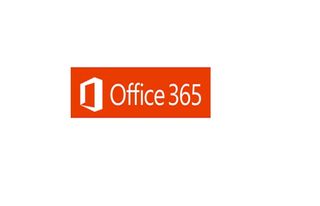Office 365: 10 reasons to switch to the cloud
We look at the way in which the cloud service could benefit your business

Businesses face a difficult decision when it comes to Microsoft Office. Do you purchase Office 2013 upfront or subscribe to the Office 365 cloud-based service?
For some organisations purchasing upfront makes sense, particularly if you prefer to stick with in-house email and file storage and want to upgrade your Office suite when it suits you, not Microsoft.
For many businesses, however, Office 365 makes more sense. Here are 10 reasons why:
1) It’s the same Office – and it’s only getting better
One misconception of Office 365 is that you’re buying into limited, cloud-based Office applications rather than fully-featured Office applications that are installed locally on your PC. This is only true of the cheapest Business Essentials plan, from £3.10 per user per month,
Business or Business Premium plans (£7.00 per user per month), or the Office 365 Pro Plus and Enterprise E3 plans (£10.10 per month) offer the exact same applications as the standard Office Home and Business and Office Professional Home and Student packages. You simply download them on demand from Microsoft.
You can still store all your documents on your local machine or company servers, and you’re no more dependent on your Internet connection than you would be if you used Office 2013. In fact, you’re arguably getting a better and more fully-featured version of Office, as Microsoft rolls out new features to Office 365 first and potentially exclusively.
Cloud Pro Newsletter
Stay up to date with the latest news and analysis from the world of cloud computing with our twice-weekly newsletter
2) Email and Scheduling with Exchange Online
With the Office 365 Business Essentials and Business Premium plans, every user you add gets email, calendaring and contacts management plus a 50GB inbox, and not on some consumer-grade webmail service, but on the business-grade Exchange Online.
Unless you’re wedded to your in-house email systems this is a no-brainer – and even more so if you have an old, outdated Exchange environment to upgrade. You can farm out your email and scheduling to Microsoft, get everything you would expect from an in-house Exchange solution, and cut down on all the work of maintenance and patching. What’s more, you can access your email and calendar using desktop Outlook, the Outlook Web App as well as via Android and iOS apps.
3) Storage through OneDrive for Business
Whether you subscribe to Office 365 or stick to Office 2013, Microsoft wants you to use its OneDrive cloud storage service. However, where the free OneDrive service gives you just 15GB of storage to use, Office 365 includes OneDrive for Business, with 1TB of storage space per user, features to share files inside and outside the organisation, and comprehensive tools to manage who can access which files and when.
This could be all the excuse small businesses need to ditch the local file server and move files to the cloud, where they’re more accessible and arguably more secure.
4) Team Sites with SharePoint Online
SharePoint is often used by large corporations with a need for intranets and document management systems, but it can be just as useful with smaller businesses and smaller teams. A simple SharePoint site for managing teams or projects doesn’t have to involve a lot of work, and Office 365 provides built-in guidance to help you add task lists, calendars, document libraries and form libraries, plus surveys, discussions and a range of other features.
You can personalise these sites to reflect your company’s branding, and even create public sites to share info with customers or partners. You might not buy into Office 365 to get your hands on SharePoint, but you may be surprised how useful it can be.
5) Communicating and collaborating with Lync and Yammer
It’s a similar story with Lync Online. Normally seen as an enterprise service for conferencing, instant messaging and voice/video calls. But it can be just as useful within a small business, enabling easy, free communications within the office and with remote workers, clients or partners outside the office.
Meanwhile, Microsoft is integrating Yammer’s business-focused social networking features into Office 365 and SharePoint Online, making it easy to set up a Twitter or Facebook-like social network for your organisation, but one which is private, business-focused and secure.
6) Flexibility
Buy a boxed copy of Office 2013 Home and Business or Office 365 Professional and it covers you for one user on one PC. Subscribe to the Office 365 Business or Business Premium plans, however, and each user can use Word, Excel, PowerPoint, Outlook, Publisher and OneNote across five PCs and Windows or iPad tablets. That’s more than enough to cover a desktop in the office, and a laptop or tablet. Office 365 isn’t even bothered whether the systems in question are Windows PCs or Apple Macs, and removing rights from one machine and adding them to another takes minutes using the Office 365 console.
Choosing Office 365 also gives you flexibility over which versions you deploy and where. Some users might need email, scheduling and basic document editing capabilities, but not fully-featured desktop applications. You can save money by giving them the cheaper Business Essentials plan and saving the Business and Business Premium plans for those who need it.
7) Work from anywhere
You don’t need Office to use the Office Online, but if you use OneDrive or OneDrive for Business it’s a godsend. You can edit Office documents using a familiar Office interface with nothing more than a browser.
All you need is a PC or laptop with a live Internet connection and your log-in credentials. It even works on Google Chromeboxes and Chromebooks. Meanwhile, Office 365 is supported by a growing number of mobile apps, not just the touch-friendly Office apps for iPad and – coming soon – Android tablets, but apps for Windows Phone, iPhone and Android phones as well.
8) Upgrades as they come
Buy Office 2013 and you buy a license to use that version of Office. Subscribe to the Business or Business Premium Office 365 plans, and updates and you’ll get the next version of Office as soon as it’s rolled out, for the same price you’re paying for each user per month right now.
This isn’t a bonus for everyone. We’ve all known companies that only deploy every second version of Office, going straight from 2007 to 2013 and skipping 2010, and some businesses would rather stick with a familiar, tried and tested version rather than roll out a new one with an unfamiliar interface and unknown bugs. If you like to keep on top of the latest features, however, then Office 365 is the best way to go.
9) Cut down on maintenance and improve security
You don’t need to update Office 2013 too frequently, but doing it across even a small to medium-sized business can be a pain. With Office 365, you don’t need to. Updates and patches roll out automatically.
Similarly, Microsoft takes care of maintaining, patching and securing Exchange Online, SharePoint Online and Lync Online, meaning everything is ship-shape, up-to-date and safe without any effort on your part. For many smaller businesses without the budget or manpower for comprehensive security management, using Office 365 can be safer than using in-house server infrastructure, and any documents, mailboxes or data stored are also constantly backed-up; a definite bonus for business continuity.
10) Using Office 365 can be cheaper
Note that we say ‘can’ be cheaper. The most basic version of Office 365 that includes the full-scale Office applications costs £7.00 per user per month plus VAT, or £252 ex VAT over three years. A single license for Office Home and Business 2013 would cost you around £150 ex VAT and might cover you for three years, five years or longer. However, if users need to work across two or more PCs the situation changes, and when you factor in the costs of email, let alone cloud storage, conferencing and backup.
The financial advantages of opting for Office 365 soon mount up. What’s more, Office 365 scales with your business if you stick to the month-to-month payment plans. Recruit new workers and pay upfront, and you’re left with unused software if you need to downsize later. With Office 365, however, you’re only paying for a user in the months where they’re using the software and services, and you can add users, provision email and storage and download the software on demand.
Office 365 isn’t for everyone, and if you’re happy working on a single PC or laptop and using internal infrastructure or another cloud-based email and storage provider, then you’ll probably save by sticking with the conventional Office 2013 bundles. Yet for many businesses there’s a compelling case to be made for Office 365. It’s easy to work with, packed with features, and could benefit the bottom line long-term.
Stuart has been writing about technology for over 25 years, focusing on PC hardware, enterprise technology, education tech, cloud services and video games. Along the way he’s worked extensively with Windows, MacOS, Linux, Android and Chrome OS devices, and tested everything from laptops to laser printers, graphics cards to gaming headsets.
He’s then written about all this stuff – and more – for outlets, including PC Pro, IT Pro, Expert Reviews and The Sunday Times. He’s also written and edited books on Windows, video games and Scratch programming for younger coders. When he’s not fiddling with tech or playing games, you’ll find him working in the garden, walking, reading or watching films.
You can follow Stuart on Twitter at @SATAndrews.





